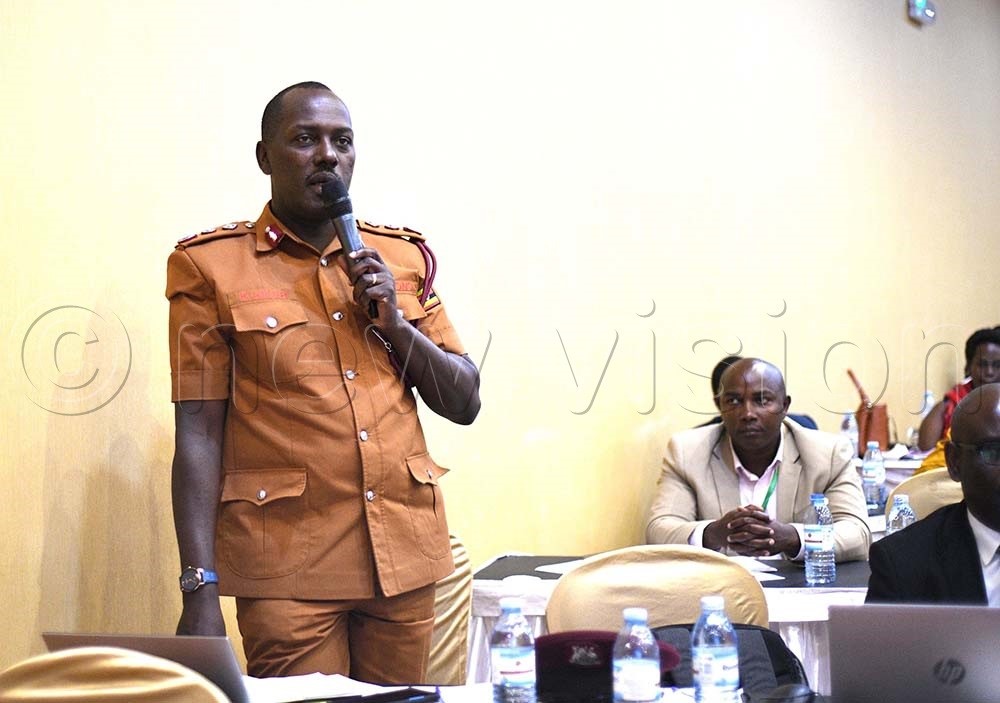Andrew Byaruhanga, 32, a resident of Bunena, Kantozi parish, in Kicheche sub-county, Kitagwenda district, planted two acres of maize hoping to get enough profits after the harvest.
He planted at the right time as the Uganda National Meteorological Authority (UNMA) had advised farmers and everything went on well.
“This time everything was articulate and my maize grew. All farmers were happy,” he said.
However, things turned gloomy, during harvest: “I had to hire about 10 people to harvest which was costly, though I was hoping to recover after the sale,” Byaruhanga noted.
He later stored his maize in one of his rooms to wait for the price to stabilise as many farmers had planted maize. Two months later, when he got a buyer, he found most of his maize rotten because of too much moisture, while the rest was spoiled by rats and other insects.
“I made a total loss and since then, decided to venture into cassava,” he added.
Keeping farmers in business
While deliberating on how to effectively improve agricultural productivity, at the Agro-Industrialisation Programme at the Speke Resort Munyonyo in Kampala, many local leaders suggested that the Government needed to invest more in the relevant tools that will keep farmers in business.
The programme is jointly implemented by the agriculture ministry as the lead, ministries of local government, trade and water.
“We need to prioritise issues of market and price to protect the farmers. Many people are quitting commercial farming because it is expensive and not profitable,” Pakwach district chairperson Robert Steen Omito said.
Omito said a farmer cannot invest sh500,000 in a garden, earn only sh300,000 after harvest and remain in the business.
He called on the Government to promote mechanised agriculture on top of other facilities such as harvesting equipment, storage facilities and ensure the prices are reasonable.
Targets of the programme
The Agro-industrialisation programme targets to have addressed the key challenges in the agricultural value chain: Production, agro-processing and value addition, includeing low agricultural production and productivity; poor storage infrastructure and post-harvest management; low value addition and poor market access and low competitiveness of agro-based products in domestic, regional and international markets.
Others are limited access to agricultural financial services and critical inputs: Poor co-ordination and inefficient institutions for planning and implementation of agro-industrialisation.
Kole resident district commissioner (RDC) Caroline Angolere said commercialisation of agriculture can never be achieved if the Government does not provide the necessary tools to motivate the farmers into producing in bulk.
“We are talking about enhancing production, productivity and export. There is a need for market information and access and good storage facilities,” she said.
She wondered how the Government expects farmers to produce in bulk with capacity.
“Have we done farmer organising so that they are able to negotiate prices that are favourable to them other than being exploited by the middlemen? Those are the things we need to look at first if we are to move forward as a country,”Angolere added.
She stressed that it is easy for the farmers to organise themselves and get to where they want to be as long as they have the necessary tools and information stressing that farmers must be assured of the profit of what they produce having invested a lot of money.


A cross-section of leaders during the Agro-Industrialisation Programme annual review meeting
Godfrey Kuruhiira, the Chief Administrative Officer of Buikwe district, said you cannot talk of industrialisation without commodities.
“Industrialisation based on agriculture needs to be backed by commodities. Choose the right commodities, bulk them and be able to give them value and struggle to compete for the world market to ensure farmers get profits,” he said.
Targets of the programme
Agriculture ministry monitoring and evaluation officer Alex Asiimwe said they want to reduce the percentage of households dependent on subsistence agriculture as the main source of livelihood from 68.9% to 55%.
“We want by 2025, the programme to have increased the number of jobs created in agro-industry along the value chain by 100,000, reduce the percentage of households dependent on subsistence agriculture as the main source of livelihood from 68.9% to 55%,” he said.
Asiimwe added that the programme is to increase the proportion of households that are food secure from 60% to 90%; increase the total export value of processed agricultural commodities and products from $0.935 billion to $2.7 billion and reduce the total value of imported cereals and cereal preparations, vegetable fats and oils and sugar preparations from $931.1 million to $500 million.
Asiimwe said the programme targets to increase the agricultural sector growth rate from 3.8% to 6.0% and increase the labour productivity in the agro-industrial value chain (value added, USD per worker) from $2,212 to $3,114.
The performance overview of the programme report shows that on average, production increased by 26.1% was below the target of 30% in the ending first year 2021/2022 of implementation, while the reduction in post-harvest losses for priority commodities from 37% in the year 2017/18 (Baseline year) to 18.7% in 2020/21, and 18.2% in 2021/22, while storage capacity improved from 550,000 MT in 2017/18 to 1,230,000 MT in FY 2021/22.
“The target of 1,050,000MT was surpassed by 180,000 metric tonnes,” the report indicates.
The report shows that the value of agricultural export registered a tremendous growth of 24% from $1, 678 million in 2020/2021 financial year to $2,085 million in 2012/2022 financial year, while the cumulative water for production storage capacity increased from 52.16 million cubic meters in 2020/2021 to 52.48 million cubic metres in 2021/2022 among other achievements.






